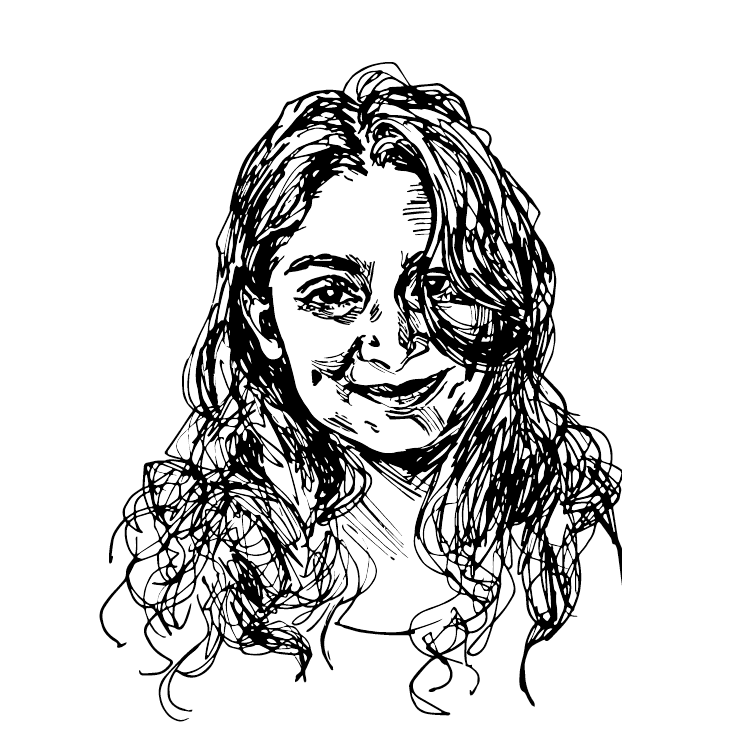
“The Afterword” is born from scribbles buried between cracked book spines, from the creased corner of a well-thumbed novel. Through this coming-of-age column, I hope to use the literary bildungsroman to make sense of my real-life experience of growing up — and to write the afterword on the texts I most treasure.
My first memories of writing were not of my own.
As I lolled about in the tepid waters of my bathtub, my mum would perch on a wooden stool, her open laptop balanced precariously in her lap. I’d relish her sentences in soap splashes, the bubbles of a buoyant turn of phrase dribbling down my bare back. Wading in the warmth of the water, in the warmth of her words, I’d watch her day’s work unfold before me, chapter by chapter, sentence by sentence. And when the finality of the last full stop was on the watery horizon, I’d savor an extra inch-full up to my chin, before the soapy slurry of an incomplete story drained coolly past my knees.
For my mother, a published author of children’s fiction, the story was over—at least for the night. For me, it had only just begun.
Later that night, I’d wait tip-toed at our home printer for a copy. It would stutter out, stalling at each textual disgorge, the smell of still warm paper and printer’s ink growing heavier in my hands. Crayons astray, I’d make amateur edits that only childhood’s playful naïveté could have gulled me to believe that my mother needed.
I’d spend the next day at primary school coaxing the clock, waiting for my mother to climb the cliffhangers she’d abandoned me at the night before. To scale her story’s rising action, pen against paper, chisel against stone, and meet me armed with a new chapter by the time I got home from school.
Only in the stuffiness of academic geek-speak did I get confirmation of what I’ve always innately known: that reading and writing, as Sartre puts it in What is Literature?, is a “pact of generosity between author and reader.”
As a child, our pact was bargained over dinner, for another bite of the stringbeans; it trailed behind us on car-rides, our ever-trundling wagon wheel; it slipped in and out of picturebooks, as naturally as a bookmark. My mother was the quiet hand, slipping kisses into the pockets of my denim dungarees on my first day of school. We’d thumbed through the pages of Angela McAllister’s A Pocket Full of Kisses the night before. My mother had breathed words into the pictures of Digby the Mole, emboldened to face similar kindergarten anxieties with his mother’s kisses tucked away in his pocket. She was the compass for my wonky pencil’s journey across the paper, my small hand wrapped inside her larger one, climbing the beanstalk of each letter and sliding down its slippery end.
And in her spare time, among the many other things my mother did, she wrote — and that was as wondrous a thing as any other.
As a teenager, our pact was an economy of words. I wanted her generosity to show itself in the stingiest sentence. An unthinking text home about how I would be staying out late prompted run-on responses, often about the perennial anxiety of being a parent, of the untimely difficulty of severing the umbilical cord. I’d groan at her perfectly worded reply, several sentences longer than mine, several inches deeper than I was looking to dig at 10 PM on a Friday. Or other times, when I would go on my evening walk with her, pausing to capture the sun-streaked Bombay sky. I was unaware, then, that as I watched the sunset, she watched me: the subject of her next prose poem, still only in its nascent beginnings.
Now, as someone who writes, I understand my mother in her visceral impulse to pin down the wandering thought, in her perception of the world through the word, in her ability to see in twenty-six-letter vision. Writing is that unbreakable pact woven into the fabric of my everyday life and my relationship with my mother.
For as long as I can remember, I have been addicted to that strange discomfort of watching the cursor blink on the empty screen until the fray ends of an idea assemble, of living in that state of suspension occupied by readers and writers. I’ve realized that my mother understands me as a reader of her most polished chapter and her most disjointed sentence; and that I, in turn, understand her by writing my own.
For the unspoken “pact” of both motherhood and writing is a willingness to suspend our disbelief, to drop it carelessly like a toffee for the promise of a generous childhood — and the promise of a generous story.
Writer and reader; mother and child.







